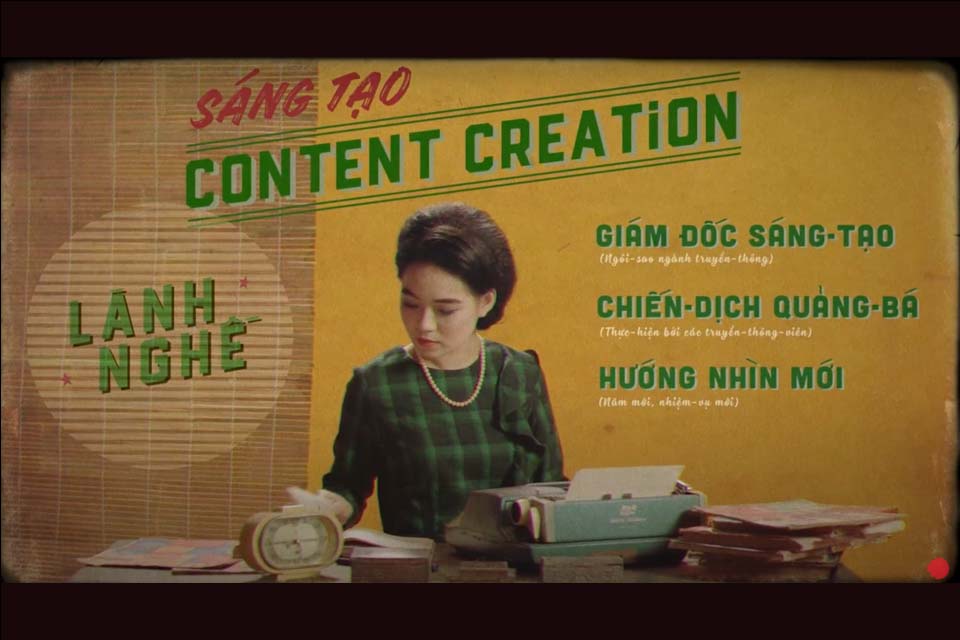- Study load
- Full time
- Program code
BP354
- Duration
- 3 years
- Application deadlines
-
06 Feb 2026
12 Jun 2026
09 Oct 2026
- Intakes
- Feb or Mar, Jun or Jul, Oct
- Location
- RMIT Saigon South
- RMIT Hanoi
- Program code
- N/A
- Application deadlines
- N/A
BP354
06 Feb 2026
12 Jun 2026
09 Oct 2026
*2025 QS World Rankings by Subject
Designed to equip you with in-depth knowledge of this strategic field, the RMIT Bachelor of Professional Communication reflects the rapidly increasing demand for skilled communication professionals.
This program features three majors and five minors with the flexibility to pursue a double major or combine a single major with up to three minors.
In the first year, students complete four courses that provide foundational knowledge in advertising and communication before choosing a major and pursuing more advanced studies from the second year onward.
This degree is crafted to blend creativity, critical thinking and professional expertise. It aims to shape modern communication experts who are imaginative, socially conscious and multi-skilled.
Throughout the degree, you will gain the knowledge and skills needed to stay at the forefront of industry trends and thrive in the ever-changing professional communication landscape. At the end of the degree, the portfolio of work that you create will demonstrate your capacity to produce, operate and innovate in a range of industry sectors. You will graduate as a technologically fluent communication professional capable of adapting to the changing demands of a global communication landscape.

The structure displayed shows the advised program structure and progression.
There are 288 credits (a maximum of 24 courses) in the program.
you will complete 4 foundation courses to give you the building blocks needed to explore your chosen pathway
You can choose several combinations
In the final year, all students will undertake the compulsory internship.
*University electives: choose up to 4 elective courses from any program at RMIT
**Program options: choose from courses in the Program options list and all courses listed within each minor
Students cannot complete a major and a minor in the same discipline. Courses completed as core or toward a major/minor cannot be counted again toward another major/minor.
Students can replace two of their major courses (excluding capstone and professional practice) with the following courses:
For the 2-major combination of Digital Communication and Public Relations, students can only complete one Professional Practice as a capstone project in one major and an internship in the other.
The advertising major blends theory and industry knowledge with practical skills like copywriting, art direction and strategy planning. Enhance your creative thinking to solve communication issues and connect emotionally with consumers.
*The Advertising Professional Practice is a project-based capstone to provide students with opportunities to develop advertising campaigns.
Media and Communication Internship (as part of the 4 program options/electives)
Digital Communication Professional Practice; or Public Relations Professional Practice
*Note: Students taking Advertising major cannot choose Option 1 (1 major + 3 minors)
Modern PR jobs focus on advising organisations on improving relationships and reputation. With a public relations major, you'll learn to effectively communicate your organisation's message to various audiences.
In this major, you will learn to use digital platforms and technologies for strategy, storytelling, content development, and audience engagement. This includes creating content and measuring its impact using various techniques, tools, and metrics.
Program guides for RMIT Saigon South and RMIT Hanoi.
The program has been designed to prepare you to work in professional communication in an international context. You will demonstrate a collaborative and professionally informed approach to your work.
RMIT provides world-class blended learning with both face-to-face and online experiences in a global network, a supportive community, and real-world skills.
Creative entrepreneurship: Increasingly, RMIT graduates are setting up their own creative businesses and companies in the fast-growing world of media and communication in Vietnam - and beyond.
When you successfully complete this program, you may be eligible for entry into an RMIT honours or postgraduate program in Vietnam and Australia.
Payments can be made each semester, on a course-by-course basis.
Fee program |
Annual tuition fee(based on full time study load - 8 courses) |
Whole program fee(24 courses - 288 credits)
|
| 14,345 USD (indicative USD fee) ~ 375,840,000 VND | 43,035 USD (indicative USD fee) ~ 1,127,520,000 VND |
Successfully complete RMIT Vietnam English Advanced, or complete one of the following English proficiency tests:
For other recognised English results, please view English equivalency requirements.
There are no prerequisite subjects required for entry into this qualification.
Previous study and proficiency tests are recognised for two years from the completion date or test date to the program commencement date unless stated otherwise. RMIT does not accept scores from at-home or online testing.
Where you have achieved more than one form of English language proficiency only the most relevant achievement will be considered in the admission decision.
Please contact the RMIT Vietnam Student Recruitment team for more information.
Don't meet the English language test scores? Successfully complete English for University for entry into this program.
Come from a partner institution? RMIT has pathway arrangements with many partner institutions around the world. If your institution has a pathway arrangement with RMIT, you may be able to receive credit and reduce the time it will take to complete your preferred RMIT program.
Find out if your institution has a pathway arrangement with RMIT.
If you have qualifications from an institution that is not an RMIT partner, credit into your RMIT program will be assessed on a case-by-case basis.
Please contact the RMIT Vietnam Student Recruitment team for more information.